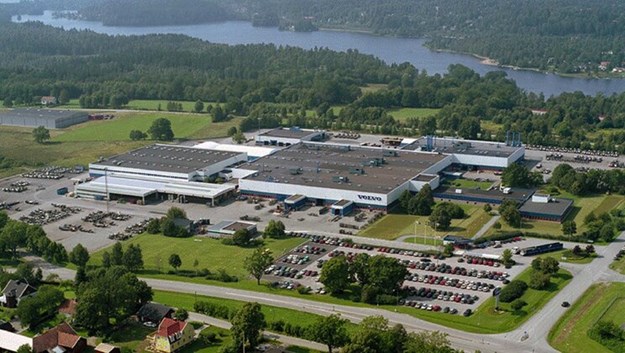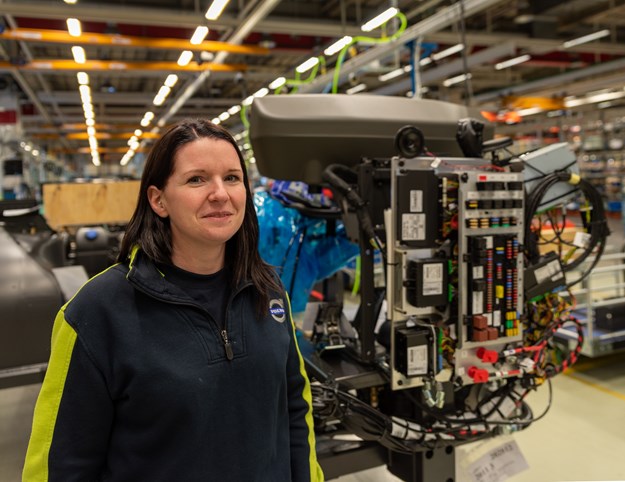A VOLVO bus-production plant in Borås, Sweden, is now one of the first facilities relying solely on renewable energy, the company confirms.
Garnered purely from renewable sources, such as hydropower and biofuels, the factory’s overall energy consumption has been reduced by 15 per cent in just the past few years, it states.
Since the Volvo Buses production plant in Borås now solely relies on renewable energy for its operation, it has been certified by Volvo as a ‘Renewable Energy Facility’, the company explains. The certification was issued following a number of steps designed to minimise the factory’s climate footprint, it says.
For the Australian market, this is exciting news, according to the company: “Knowing that the Volvo Group worldwide really do have a commitment to ensuring sustainability starts long before our products even hit the road is very reassuring,” said Lauren Downs, general manager, Volvo Bus Australia.
“As we continue to deliver Euro 6 and hybrid vehicles today, and move towards bringing our first full electric vehicles to the Australian market, we are reassured that our organisation continues to be a leader in sustainable transport solutions,” Downs explained.
A proud Joakim Wretman, production manager at the Volvo Buses Borås plant said:”We are of course very proud that we have reduced our climate impact by only using renewable sources and all the energy we purchase is fossil-free.”
“The electricity comes from hydropower, our district heating is provided by biofuels, and the fork-lift trucks in the factory run on electricity or HVO, which is a renewable fuel,” he added.
ENERGY CUT
In recent years, the factory also implemented a number of measures that together cut energy consumption by 15 per cent, claims Volvo.
“For instance, we have replaced conventional fluorescent bulbs with LED light fittings and the manufacturing plant’s lighting is regulated automatically, so it is only active during actual production.”
“We also ensure that no electricity-consuming equipment remains switched on when it is not needed,” added Wretman.
“We have noted immense enthusiasm on the part of all our employees, and our local partner has contributed both know-how and practical solutions.”
CO2 EMISSIONS
Yet another example is the Borås factory’s participation in Autofreight, a project designed to reduce transportation between the Viared Logistics Park and the Port of Gothenburg. According to the company, it’s a solution that from the start helped cut CO2 emissions by about 30 per cent.
Reducing the climate impact of production is one of several aspects of Volvo Buses’ environment-enhancing work, it explains.
“We regard our products in a lifecycle perspective and work continuously to reduce our environmental impact at every stage, from production to daily operation, reuse and recycling,” explained Andreas Carlén, Energy Efficiency & Environment director at Volvo Buses.
“Up-to-date examples are our ongoing projects for repurposing our electric bus batteries, which can now enjoy a second life as energy storage units in homes,” he added.
FAST FACTS – Volvo Buses Borås
* Volvo Buses’ hub for the production of bus chassis;
* Has a capacity of approx. 10,000 bus chassis to be built every year;
* About 300 people work there;
* Is the fifth facility within the Volvo Group to receive a ‘Renewable Energy Facility’ certification.
Photography: courtesy Volvo Europe






.jpg)
.png)
.jpg)